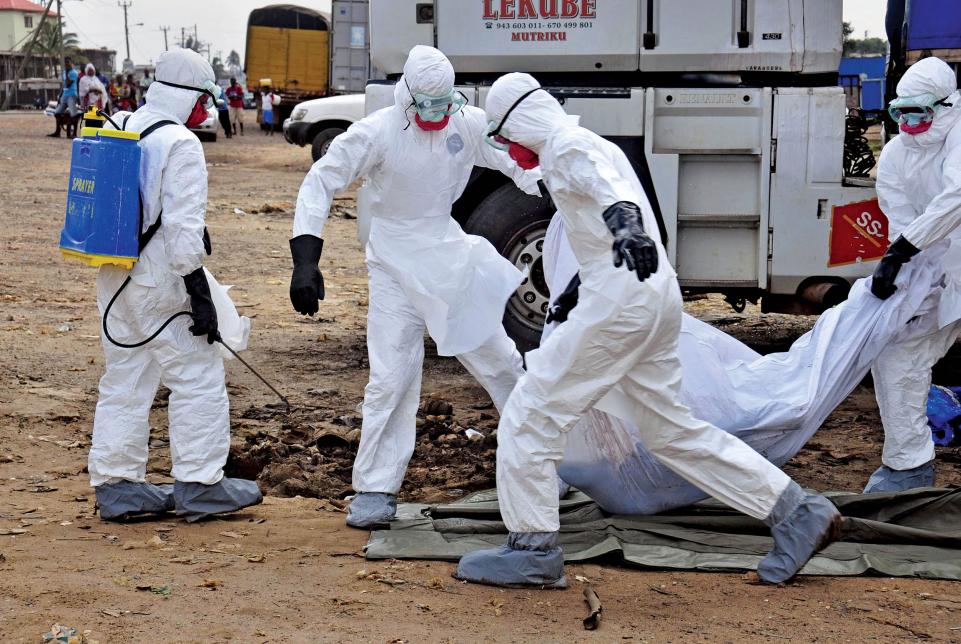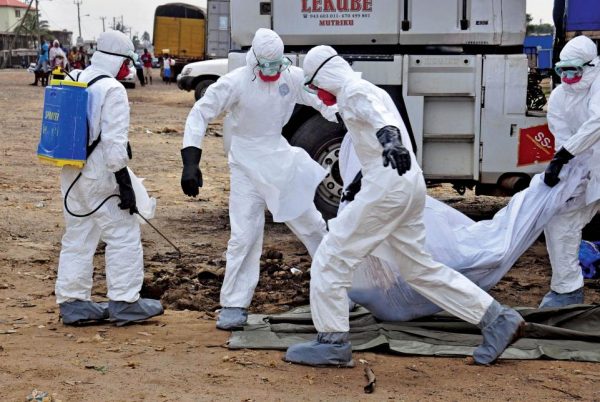Not many people get to appreciate the mess Nigeria was saved from when the Ebola epidemic hit the country on July 20, 2014. The dreaded viral infection was introduced by Patrick Sawyer on arriving the country via the Murtala Mohammed International Airport. The non-patterned lifestyle of the poor majority of citizens would surely have made handling the epidemic a most difficult task for the government to handle.
It would have been a national tragedy if the combined efforts of doctors, nurses, field epidemiologists, social mobilisers, the government, WHO officials and other volunteers had not saved the nation from what would have culminated into a disastrous tale for the most populous black country in the world.
When Patrick Sawyer, a diplomat who had contracted the Ebola virus escaped quarantine and entered Nigeria via a flight from Liberia, he fainted on disembarking and was summarily moved to First Consultant Hospital in an emergency. There and then he was attended to by Dr Stella Ameyo Adadevoh, a senior consultant physician at the hospital, as well as by other nurses on duty.
It happened that Sawyer was not responding to treatment; so the doctors sent his blood sample to Lagos University Teaching Hospital (LUTH) for further testing. By the time the results were gotten, it was already too late to have taken the type of precautions which was necessary for the kind of infection the Ebola virus is. The smartness and carefulness of the medical team at First Consultant Hospital was the trigger which set other emergency balls rolling. They also made sure they prevented further spread of possible infections by quarantining every necessary point, patient and staff in the hospital while alerting government officials of the impending crisis.
Meanwhile, Dr Adadevoh and a few others were already feeling ill by the time Sawyer’s test results would arrive and the Ebola virus was confirmed. The Federal Government promptly declared an Ebola emergency on confirmation of all suspicion of the epidemic so that even citizens will be ready enough for the worst while taking sanitary precautions on the other hand. Public sensitisation also corroborated the synchronized action.
The Nigerian Center for Disease Control (NCDC), Lagos State Government, Federal Ministry of Health and WHO had already swung into action and activated an emergency plan which was used previously to tackle polio outbreaks in the past. A daunting task was ahead of them. Officials and volunteers under the guidance of the emergency action team created emergency centres and also immediately geared into tracing, investigating and quarantining anyone who possibly might have been in contact with others all the way from Sawyer to third generation contacts.
This assignment to be undertaken by the select team of experts and courageous people would have to be an assignment imitating the dexterity, smartness and swiftness of police detectives. They did accomplish the task in the end. As of September 24, and by the close of the tracing and investigation, they had checked 26,000 houses, made 18,500 face-to-face visits and identified 894 contacts connected to the index case. Out of the 20 people confirmed cases of infection, 8 people eventually died. And by October 20, Nigeria was declared Ebola-free by the W.H.O, even while the United States was still battling with its own case of the Ebola infection.
Considering the fact that the Democratic Republic of Congo is still struggling with the Ebola epidemic since a new round broke out in August 2018 were at least 200 people have died, it is good to acknowledge the huge and unprecedented victory Nigeria recorded in managing one of the worst and deadliest epidemic ever. In fact, the first case of Ebola was discovered in Congo in 1976, and it has unfortunately been rearing it’s ugly head within a number of African countries ever since.
The sacrifices made by the team, as well as individuals such as Dr Stella Adadevoh who died eventually as a result of her exposure to the virus, saved a nation. On October 27th, she was duly honoured with a Google Doodle. Such sense of duty and heroic readiness is also a good reminder to citizens that little acts of patriotism will not be ignored when the roll call of heroes is being displayed for the world to see.


